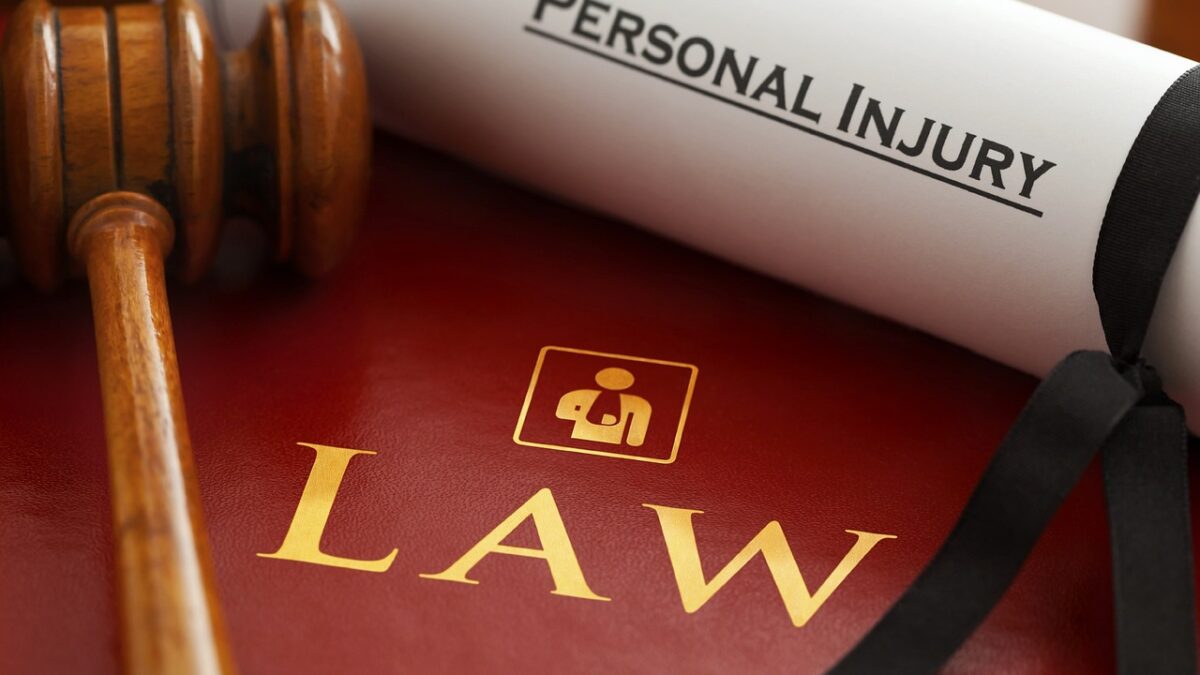
How do we overcome barriers to Diversity, Equity, and Inclusion in Practice?
July 14, 2024
Why Is Your USCIS Case Taking Longer Than Expected To Process?
July 14, 2024Life can change instantly if someone else’s reckless or negligent behavior leaves you hurt. Pursuing financial justice feels complicated when facing emotional trauma or disability disruptions. Personal injury lawyers guide victims through chaotic times, fight insurance battles, and secure optimal compensation restoring stability.
Types of Personal Injury Cases
Personal injury lawyers handle a wide range of incidents, including:
- Car Accidents: Collisions involving cars, trucks, motorcycles. This is one of the most common case types. Compensation covers medical bills, vehicle repairs, and lost wages.
- Medical Malpractice: When doctor mistakes, surgical errors, or misdiagnoses cause health declines. Lawyers must prove substandard care. Awards fund additional treatments or permanent living aids.
- Workplace Injuries: Job accidents resulting from unsafe working conditions, defective gear, machinery issues. Workers’ compensation benefits may apply to protecting employees.
- Slip and Fall: Property dangers like wet floors lacking warning signs, poor lighting, or construction debris trips causing injury. Property owner negligence must be established.
- Product Liability: Faulty consumer goods or defective drugs injuring buyers/users. Lawyers establish if design flaws or insufficient safety warnings exist.
- Wrongful Death: Losing life prematurely because of another’s provable recklessness. Bereaved families may claim funeral costs and emotional damages.
The Role of a Personal Injury Lawyer
Personal injury lawyers play several critical roles in assisting clients:
- Case Evaluation: Analyze incident merits, research evidence needing gathering, define liable parties, and judge potential case strengths before signing retainer agreements to commence.
- Investigation: Dig deeper seeking witnesses, snapping incident scene photographs, securing surveillance footage, constructing sequence-of-events contributing to accidents strengthening arguments.
- Negotiation: Leverage findings demonstrating negligence and calculated harm valuations shaping settlement offers then aggressively negotiate insurance companies seeking full equitable compensation outside courts ideally.
- Litigation: If satisfactory extrajudicial resolutions become unlikely and clients choose to pursue civil lawsuits, lawyers handle all facets of cases through alternative dispute resolution processes or jury courtroom trials arguing aggressively to prove injuries/damages were preventable.
- Advocacy: Throughout prolonged multi-month or multi-year commitments, attorneys remain dedicated moral support allies and legal advisors ensuring clients secure the most financial assistance and medical care resources possible allowing putting chaotic disruptions behind them.
Why You Need a Personal Injury Lawyer
Retaining personal injury representation provides numerous advantages versus tackling legal struggles alone:
- Expertise: Seasoned lawyers know procedural rules, strict deadlines, and negotiation tactics for maximizing case values that novices grapple with.
- Objectivity: Emotional trauma clouds rational thinking. Lawyers give calculated guidance that clients often overlook by themselves when anger or grief sets in initially.
- Resources: Finding and enlisting situation-specific medical/accident experts, economic analysts projecting lifetime earnings/therapy costs, and accident recreationists duplication falls beyond lone individuals’ feasibility.
- Negotiation Skills: Attorneys wield years more bargaining experience netting far larger financial recoveries through aggressive demands and strategic give/take concessions outmaneuvering insurance company adjusters seeking to minimize payouts.
- Stress Relief: Lawyers handle heavy logistics like endless paperwork, communications, and court appearances alleviating anxieties complainants contend with handling alone until cases conclude satisfactorily.
How to Choose the Right Personal Injury Lawyer
Selecting suitable personal injury representation remains paramount seeking positive case resolutions. When vetting prospective lawyers, consider six key factors:
- Experience: Retain counsel demonstrating lengthy immersive backgrounds tackling specific accident categories tied to client claims at hand. Ask about case samples and win rates.
- Reputation: Seek referrals from trusted providers like doctors or victim advocacy groups regarding attorneys renowned for succeeding historically plus gather online reviews revealing competencies and temperaments.
- Track Record: Probe settlement averages achieving and litigation win percentages across cases similar to forthcoming challenges indicating which lawyers excel in converting tense situations into satisfactory closure.
- Communication: Necessitating intense vulnerability and thick strategic complexity simultaneously, ideal legal partners explain compassionately and tailor messaging to meet anxious clients at their levels using non-jargoned layman terms.
- Fees: Injury lawyers routinely take cases on contingency not collecting fees unless cases settle or finish trial favorably. Comparison shop percentages ranging from 25%-40% against resolution values.
- Comfort Level: Pay attention to social cues feeling out which prospective attorney meshes interpersonally for easier trust-building and fact-sharing beneficial for case strategizing as deeply personal details inevitably emerge.
Factors to Consider When Finding a Long Island Personal Injury Lawyer
Seeking legal injury assistance on Long Island specifically, ensure prospective counsels demonstrate:
- Local Expertise: Nearby lawyers understand Nassau County and Suffolk County courts/judges navigating efficiently while tapping knowledgeable witnesses/experts to fortify cases.
- Specialization: Retaining litigation attorneys concentrating specifically on injury disputes better position cases against those dabbling in assorted general practice aspects.
- Availability: Injured victims need attorneys personally overseeing cases, not handing them off to junior underlings eventually. Ensure partners directly manage your interests.
- Client Reviews: Check ratings among previous Island clients reporting positively on guidance satisfaction, legal mastery, and responsiveness in handling regional claims reminiscent of forthcoming challenges.
- Consultation: During initial no-fee consultations, gauge which prospective lawyer addresses issues most insightfully with workable solutions and interpretations of island laws.
- Success Rate: Probe estimated odds succeeding locally through illustrative case examples plus projected award ranges typical island injury cases yield achieving currently.
If you’re looking for an experienced personal injury lawyer in southeastern New York State, find a Long Island personal injury lawyer to assess your case and champion your rights.
The Legal Process in a Personal Injury Case
While daunting initially, understanding the core legal process phases demystifies things helping brace reasonable expectations:
- Initial Consultation: No-pressure introductory meetings explaining attorney qualifications, case analyzing preliminarily, and signing agreements formally engaging counsel.
- Investigation: Collecting police reports, snapping accident photos, interviewing eyewitnesses, subpoenaing facility records, and reenacting mishaps.
- Filing a Claim: Presenting written demands to insurance companies substantiating injuries and requesting compensation theoretically covering economic plus non-economic damages tallied. Negotiations follow.
- Discovery: Mandatory evidence-sharing phases allow both legal camps access to documents and depositions shedding light on incidents from multiple angles.
- Negotiation: Leveraging compiled proof and calculated harm valuations, lawyers negotiate vigorously outside court for swifter closure. Over 90% settle sans trials.
- Trial: If non-agreements are reached attempting satisfactory terms, civil courtroom trials ensue so jury decisions impose binding resolutions. Witness testifying, expert testimony, and oral arguments strive to sway judgments favorably.
- Appeal: Dissatisfaction with jury verdicts prompts appeals processes disputing legal rulings or punitive calculations awarded following trials searching higher awarded amounts sometimes overturning previous inadequacies.
Tips for Working with Your Personal Injury Lawyer
Optimizing outcomes requires clients to collaborate through:
- Be Honest: Withholding embarrassing truths inhibits strategic planning. Discuss substance abuse, and medical histories that arise. All secrets stay fully confidential as lawyers must know the whole picture acting effectively.
- Stay Informed: Absorb legal explanations, ask probing questions clarify doubts, and comprehend timelines/limitations central to navigations. Ignorance of case statuses imperils outcomes.
- Communicate: Return calls promptly, provide requested documents when needed, and update health changes immediately. Lagging responses and vagueness undermine cases.
- Follow Advice: Lawyers share opinions intending well-being in clients’ long-term interests. Ignoring guidance often proves unwise upon reflection after settlements are finalized. Hear them out.
- Document Everything: Start injury journals tracking medical visits, phone calls from insurers, and accident memories. These contemporaneous notes help lawyers’ arguments enormously confront disputing versions of events later.
Conclusion
Indeed, after unfortunate injuries caused by preventable incidents, swifter financial and medical recoveries become the second priority in seeking regained stability. Though independently navigating legal complexities feud with insurers tempting initially, seasoned personal injury attorneys tilt outcomes favorably through shrewd regional insights, bulldog negotiation experience, and compassion shepherding victims onto restored paths. With client cooperation forthrightly, attorneys maximize compensation serving, advocate admirably, and counsel wisely settling turbulent cases satisfactorily.




